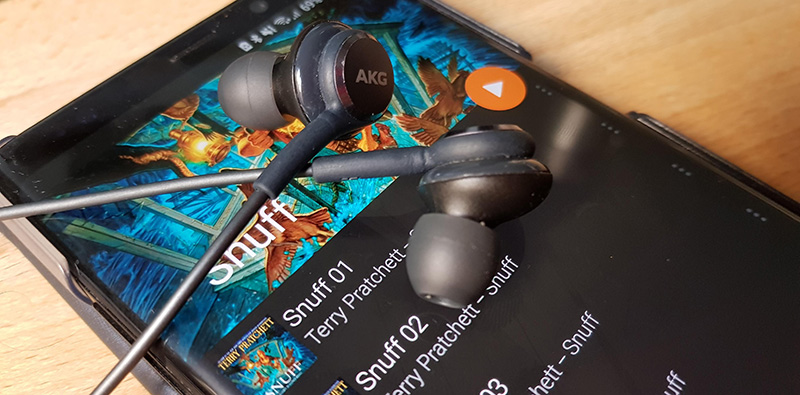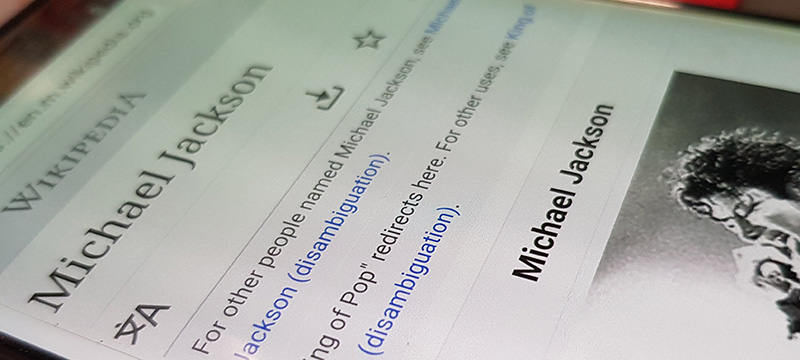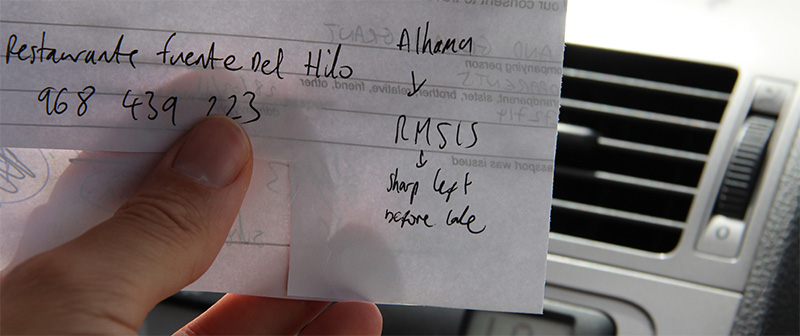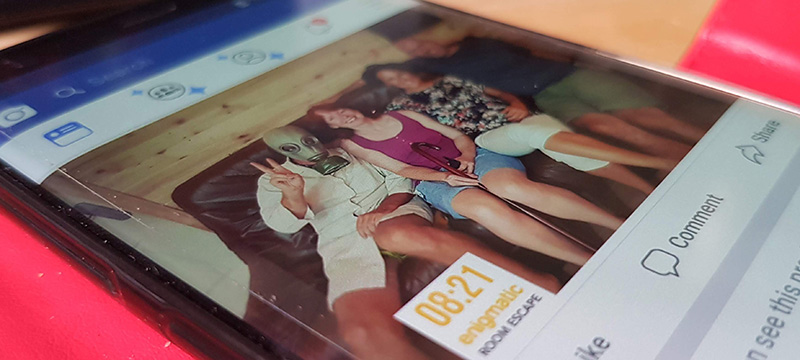
A day without technology
Written by Mat
Hi, Mat here. I've been thinking a lot recently about my dependence on technology, and especially my phone.
We've been listening to Note To Self podcast where presenter Manoush Zomorodi considers how to stay human in an accelerating and increasingly technological world. She covers topics such as data privacy, how to cope with information overload and how to limit screen time. Most importantly the podcast considers how these affect human behaviour and relationships.
My smartphone rarely leaves my side - it's on my desk all day, in my pocket when I'm not at my desk, and it sits by my bedside every night. In fact, I'm using it right now to type these words. I wanted to try a day without it, and for good measure, I thought I'd take off my Fitbit at the same time. I've been collecting health data 24 hours a day for over a year now, so missing a day isn't going to hurt.
Kat and I recently went to stay with friends a few hours south of Valencia for the weekend, and I knew they'd be up for a challenge, so I suggested to them that we all turn off our phones for a day and see how we feel about it. I was thrilled when they said yes!
The experiment
At 11:30pm on Saturday night we all turn off our mobiles and head to bed. I'm a little anxious, because I often listen to audiobooks when I can't sleep, but their house is really quiet and I'm very tired, so I'm hoping it won't be an issue.

Sleeping without audiobooks
I wake up and immediately face the first problem - what time is it? It's light but no-one else is awake, feels about 8am.
Lying in bed I realise how much I would have used my phone already - check my sleep, catch up on WhatsApp conversations, look at Facebook.
I start to calculate how much sleep I might have had, and then wonder if this is important. Do I feel refreshed? I'm not sure.
Eventually curiosity gets the better of me and I find some clocks in the house where we're staying. They all say slightly different times from 08:30 to 08:50. I take an average and decide it's time to get up.

Breakfast without Wikipedia
A lingering question from late last night about Michael Jackson's middle name can't be resolved with the books I can find at our friends' house, so I settle for reading an English textbook with breakfast instead of the usual Wikipedia or listening to a podcast.
A query over the plural of agenda (agendae or agendas?) is eventually answered by hunting through a Scrabble dictionary. I have a strong tan line where my Fitbit normally sits on my wrist, collecting data.
My mind keeps coming back to work - I'm unable to check on the status of our servers, even though I never normally do this at the weekends and our server technicians always deal with any issues that happen. I can't shake this feeling that something important needs my attention. I decide to practice doing handstands instead.

Navigating without maps
We decide to head off for an adventure in the countryside. I can't remember the last time I left the house without my phone. We have no map, our instructions are just three lines. We have decided that one of our group will bring a mobile for emergencies, but that it will be switched off. We don't discuss in detail the nature of these potential emergencies, but I doubt that looking up MJ's middle name counts.
In the car, we turn on the radio instead of streaming music. Spanish radio stations have an obsession with 80s English-language pop, and it's nice to hear music I haven't chosen.
We've phoned (using the land line) a restaurant for lunch, and just have the name of the restaurant to guide us there. It works, and my faith in my friends' abilities to navigate is assured.
By lunch time I don't miss my phone at all. We've made a small list of things to look up tomorrow, and spent lunchtime chatting. I feel much more engaged without the ability to constantly fact check or research the conversation. We talk about 80s TV shows and it's fun to try to remember them instead of immediately consulting Youtube for old clips.

Photos without a phone
We spend the day exploring a nature reserve in the mountains and normally I would be taking snaps on my phone. I've brought along my trusty digital SLR as a replacement, which I haven't used in over a year.
Even though the camera on my Samsung Note8 is excellent, I'd forgotten how much better my 7-year-old Canon 600D is. There's no reception in the mountains anyway, so I wouldn't have been able to share photos from my phone.

Haven't you forgotten something?
My brain still keeps reminding me that one of my pockets is lighter than normal, and maybe I've forgotten something.
By mid-afternoon none of us misses our phones. We spend the rest of day chatting and occasionally making jokes about things we want to look up later, but it feels very natural, and I realise just how disconnected I am from my friends with my phone in my hand.
In the evening we go into town to do a puzzle room. Kat writes down the address and we manage to find it without any problems. And we escape with over eight minutes on the clock and only one clue, hooray!
By the time we get home, the 24 hours of no technology has ended, but to be honest I'm kind of reluctant to turn my phone back on. Unsurprisingly, I didn't miss anything important.
In summary
The main problems I noticed during the day were having to write my notes about the experience longhand, and subsequently spending hours trying to decipher my own terrible handwriting, and constantly trying to find out what time it was.
I'm going to try turning off my phone every Sunday for a month and see what happens. In hindsight I don't think I needed to take off my Fitbit for a day, because I don't obsess over it - it doesn't really tell me anything on its own.
Without going to this extreme day-to-day, we've both taken on board a number of suggestions from Note to Self to stop our phones taking up so much of our time and attention:
- Out of sight (but not out of earshot) - a phone within reach is always a temptation!
- Keep it purposeful - I try to use my phone deliberately for a particular purpose and not just idly picking it up without thinking
- Keep it focussed - remembering the reason that I picked up my phone and not falling down the rabbit hole of other apps
- Time-limited - if I'm browsing infinite-scroll sites, I think about how long I want to do that for e.g. 5 minutes browsing Reddit
- Narration - if I use my phone in the middle of a conversation, I let the others know what I'm doing and why so it doesn't alienate them
- Resist notifications - this is the hardest part, but deep-down I know that message notifications don't need to be checked immediately especially if I'm busy or with others.
Have you ever tried turning off your tech? Let us know what you think!
Tagged under: Bluffers guide Hot topics Connectivity Health Team Leisure